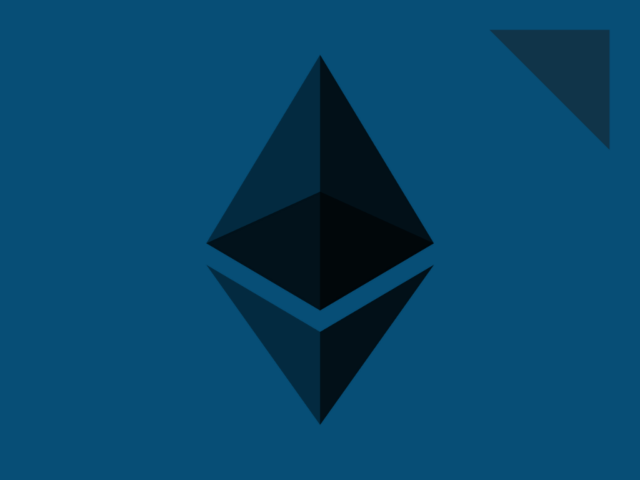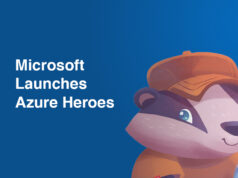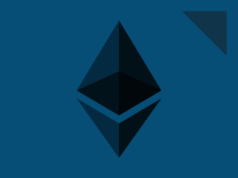Over the past couple of weeks we have witnessed a handful of significant birthdays; including the 1st anniversary of the DAO Fork, the fifth anniversary of the ETH sale and the fourth anniversary of the Ethereum genesis block. The Security and Exchange Commission (SEC) has also given direct approval to several Ethereum-based token projects.
We’ve also seen two big moves from regulatory bodies towards Ethereum-based tokens.
Top Story
Welcome to our series of bi-weekly news digests for Ethereum (ETH).
July 25th
Ethereum-Based Token Becomes Second To Ever Receive SEC ‘No Action Letter’

The Security and Exchange Commission (or SEC) in the USA has officially given the first ever direct approval to an Ethereum-based token called ‘Quarters’, and the second out of all crypto tokens to receive one overall.
This means that Ethereum-based ‘Quarters’, can issue their new token for sale to the public without the need of registration or governance by the SEC.
Video-games focused blockchain startup Pocketful of Quarters (PoQ), built on Ethereum, was sent a ‘no-action’ letter by the SEC; authored by Chief Legal Advisor at FinHub, Jonathan A. Ingram. It communicated that commission had ruled the following regarding the token’s forthcoming sale
“PoQ offers and sells the Quarters without registration under Section 5 of the Securities Act and does not register Quarters as a class of equity securities under Section 12(g) of the Exchange Act. Capitalized terms have the same meanings as defined in your letter.”
A List of Rules

Ingram also offered a list of nine stipulations that must be followed by PoQ if it wishes to retain its current regulatory status. They are listed in detail on the letter, and we’ve selected some key highlights which stand representative to potential future tradeable tokens and platforms…
“PoQ will not use any funds from Quarters sales to build the Quarters Platform, which has been fully developed and will be fully functional and operational immediately upon its launch and before any of the Quarters are sold”
This step is in place to guarantee that customers are purchasing a token for utility purposes, and not unknowingly investing in the creation or development of what should be a fully-complete platform.
In fact, PoQ has already raised $145,050 on a capital investment crowdfunding platform called Republic, successfully exceeding their stated ‘minimum funding goal’ by 145% from 436 investors on December 31st 2018. This was using a completely distinct ‘investment token’ which itself was registered as a security with the SEC.
“Quarters will be made continuously available to gamers in unlimited quantities at a fixed price;”
“PoQ will market and sell Quarters to gamers solely for consumptive use as a means of accessing and interacting with Participating Games.”
As a non-investment utility token its quantity must be limited to prevent volatility and price manipulation. This simultaneously prevents it from being traded as a digital asset.
In the words of 12-year-old CEO George Weiksner,
“[The] two-token system is meant to ensure that users conduct transactions with Quarters, rather than hold them in the hopes of securing a return”
More information

Pocketful of Quarters calls itself “the future of games” and advertises forthcoming compatibility with a range of popular multiplayer online video-games, including: Fortnite, PlayerUnknown’s Battlegrounds, Counter-Strike: Global Offensive, Call of Duty: Black Ops, and Battlefield V.
Its team is aiming to make the token into a universal virtual currency for gaming, with the ability to be used across different games and platforms which feature marketplaces. PoQ gained significant attention after appearing on the program Meet the Drapers.
This solves a pertinent problem of redundancy, as new games constantly come out and old funds are left behind due to an inability to transfer funds. Top partners include Rise9 and Matic.network.
Private-jets-for-hire company Turnkey Jet was the first project to receive such a no-action letter, back on April 2nd, 2019.
More News
July 23rd
Ethereum based $280 Million Real-Estate ‘Bond’ Token Approved For Sale in Germany

Germany’s financial regulator BaFin has given the go-ahead for the sale of the ‘Real Estate Token’ based on the Ethereum blockchain, and valued at approximately $280million.
The sale is backed by a portfolio comprised of five construction projects located across the country including cities Hamburg and Frankfurt, in addition to the town of Jenna. Investors will have the opportunity to make deposits and withdrawals in either euros or ether (ETH), and the token will run on the public Ethereum blockchain using the ERC-20 standard.
Florian Glatz, co-founder of blockchain startup Fundament, has stated that the company is already working towards the tokenization of other “highly attractive assets”.
New Anti-Money Laundering (AML) regulations were introduced by German Federal Financial Supervisory Authority (BaFin) on July 24th 2019 which are set to be implemented next year. It will require a wide number of related organisations to soon be registered and licensed by the authority.
Real Estate Token is set for release ‘soon’ and interested parties can register for updates on the official site. The team boasts that its token is
“injecting liquidity into traditionally illiquid real estate investments. It is globally tradeable.”
It offers a ‘planned rate of return’ of: 4 % p.a. (IRR) plus possible sales revenue.
Quotes
A BaFin representative told Coindesk:
“We can confirm that we granted approval for a Fundament Group prospectus. It has indeed been the first time we have approved a prospectus regarding blockchain-based real estate bonds, but not the first time in respect to blockchain technology as such.”
Co-founder, Florian Glatz told CoinDesk:
“The reason we went through this long tedious process with regulators was to get rid of any restrictions. Normally these projects are limited either by the minimum investment amount, which would be north of €100,000 or limited heavily in the amount of investors you could have. So it’s the first really like mass-market tokenized real estate for the world.”
““Holding a token enshrines a legal claim of the holder against the issuer of the bond to pay them an annual dividend of around 4-8 percent, and obviously once the run time of the fund is over and there is an exit, then the token holders get the complete value that was within this fund,”
July 20th
EthDenver2018 Winner Elk Exceeds Kickstarter Goal, With One Month Left

Elk, a hardware development kit created by the winning team of EthDenver2018 launched a Kickstarter crowdfunding campaign this month. As of August 9th, 2019, it’s successfully exceeded its £16,479 goal and raised £26,592 – coming from 329 backers, and it still has 30 days left to go.
It can be described as something akin to a Raspberry Pi, but for the blockchain development enthusiast community. It is completely tokenless, claims to be ‘truly decentralized’, and offers open-source hardware AND software.
Major investors cited on the page include ConsenSys Ventures accelerator Tachyon (which focuses exclusively on Ethereum-based projects), Endure Capital, 500 Startups, and Flat6labs. Elk partners include ConsenSys Academy, Streamr, Gitcoin and MetaMask.
Previously, the Cairo-based team was responsible for creating a product called ‘1Sheeld’ in 2013. A hardware board which allows users to convert their smartphone into 40+ Arduino shields.
Price Movements


Information correct as of 14:27 PM, 9th August 2019



